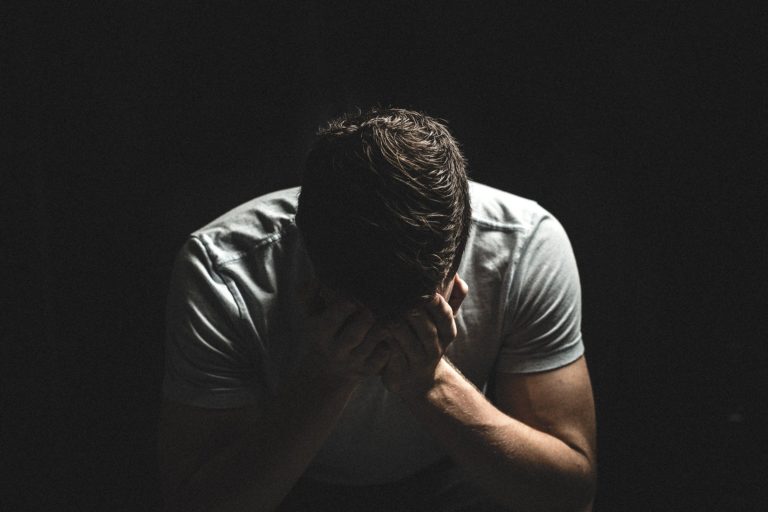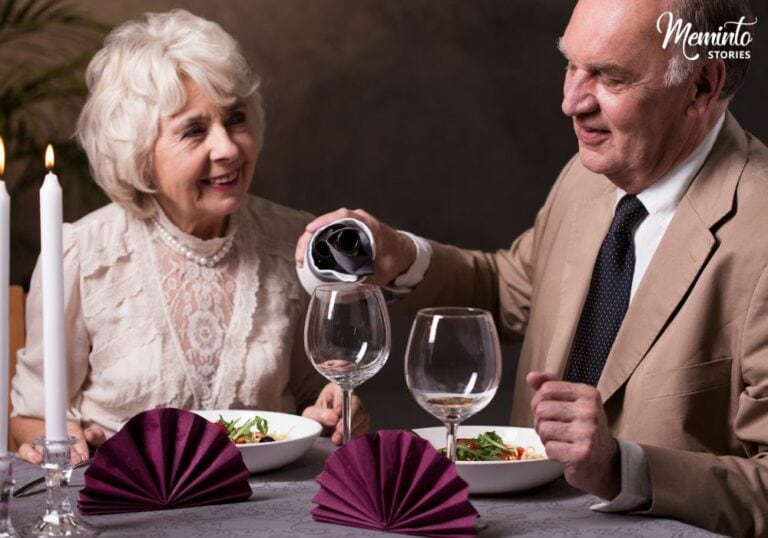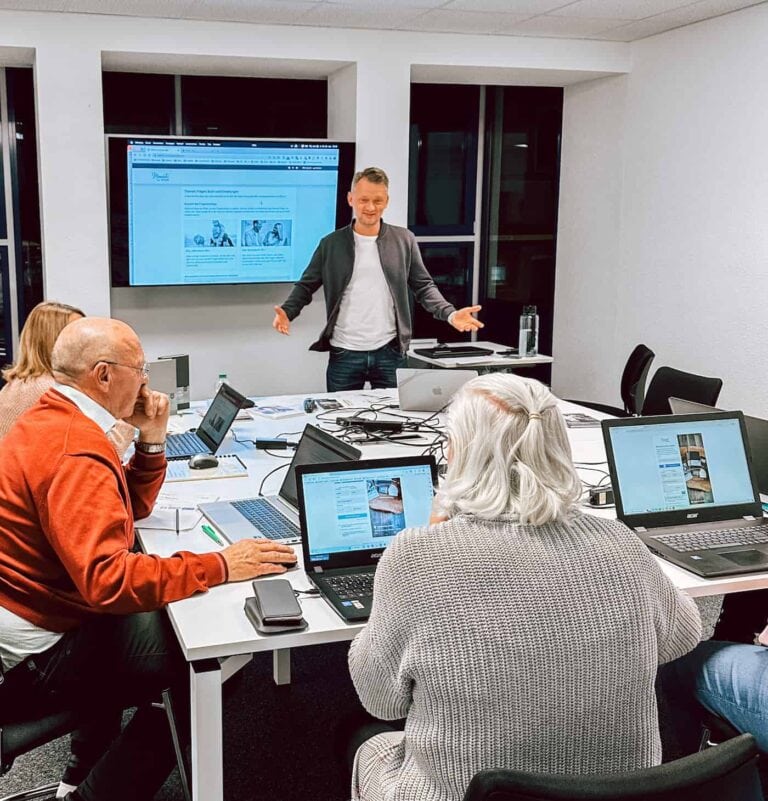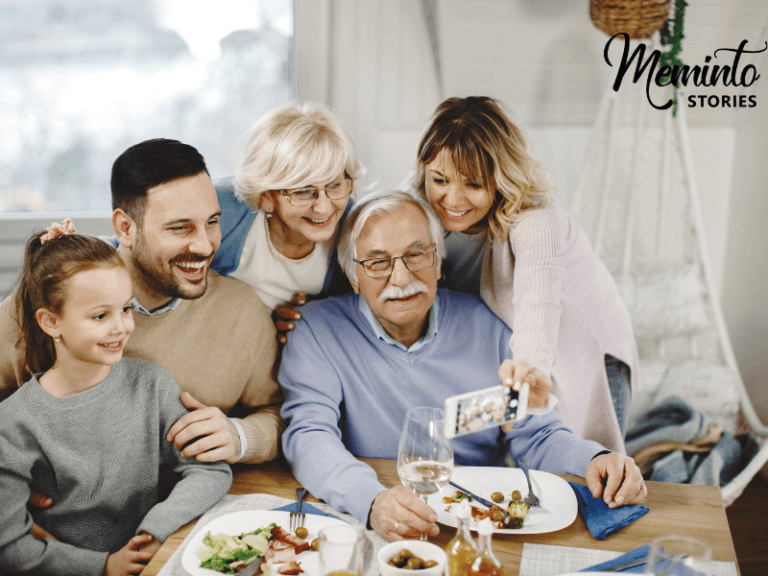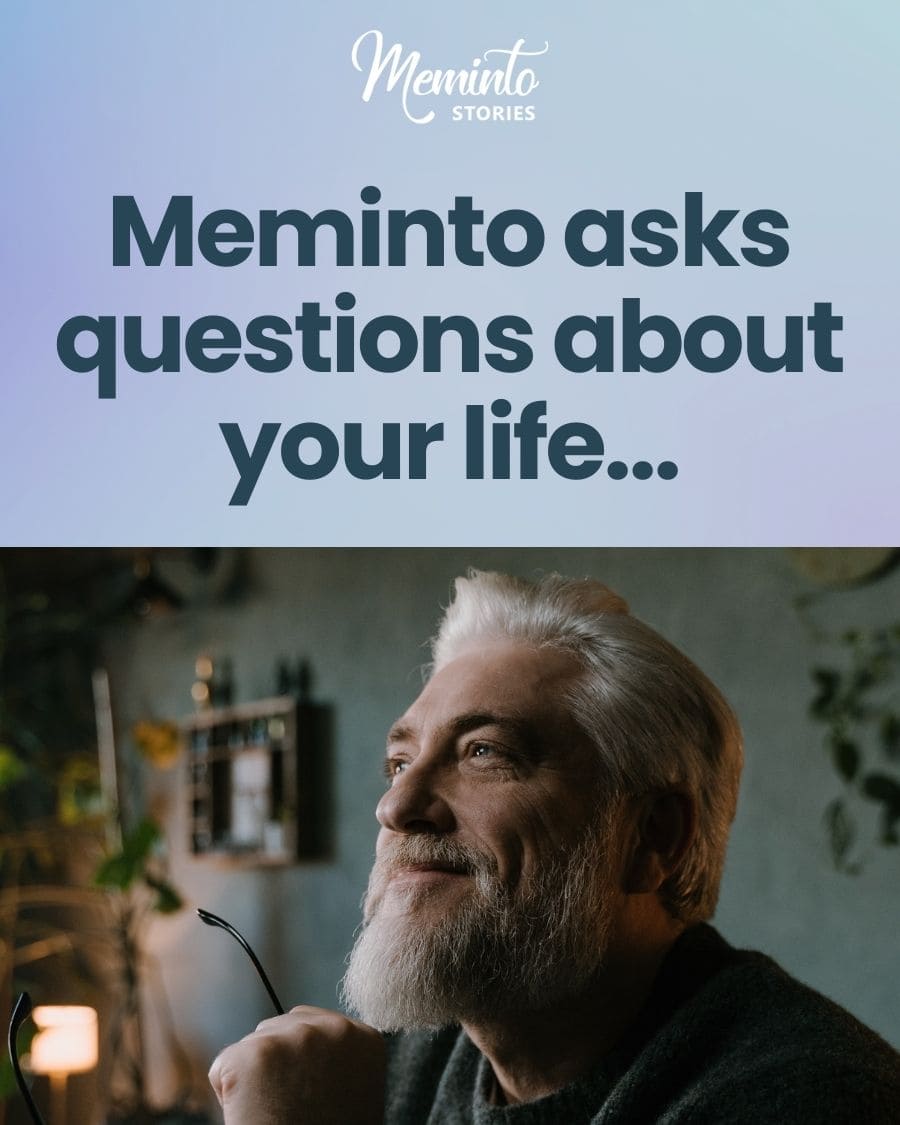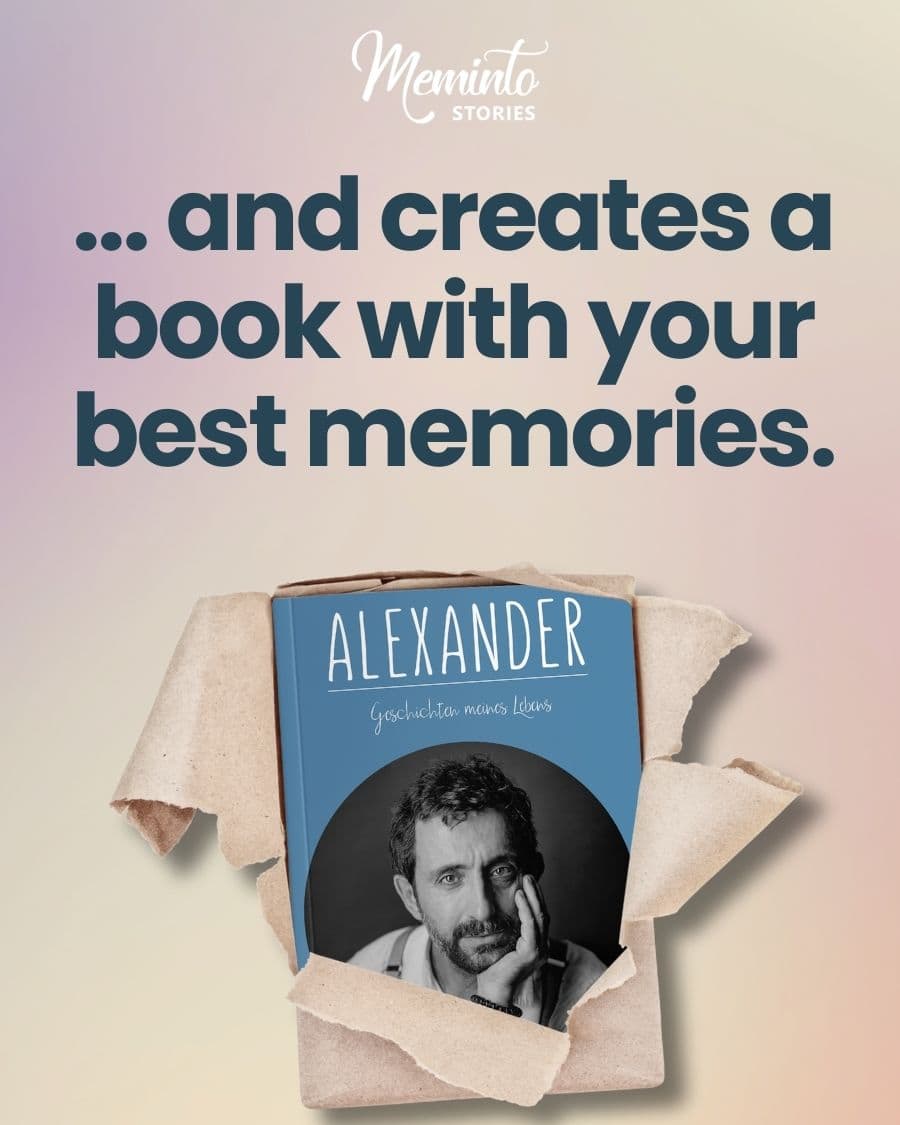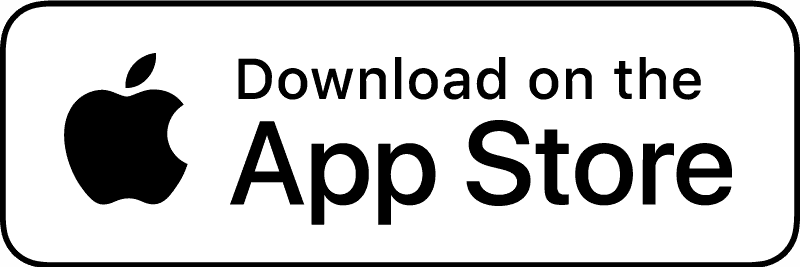Your childhood memories have shaped you, highlighting the moments that have defined your joys and fears. These questions are designed to help you explore those impactful memories, giving you a deeper understanding of yourself.
Embarking on this journey to explore your past is not just about nostalgia; it’s a path to self-discovery and healing. It’s a chance to reconnect with your younger self, make sense of your actions, and heal any wounds with openness and courage.
In this article, you will find 200 questions that can unlock the stories of your childhood. They encourage you to uncover, reflect upon, and grow from your discoveries. And what better way to preserve these precious memories than by creating your memory book on meminto.com ? It’s an opportunity to transform these insights into a beautiful, lasting keepsake. Join now and start crafting your personal memory book.
Key takeaways
- By asking questions about your past, including joyful moments and challenges, you can deepen your self-awareness and aid in personal growth.
- Nostalgia can be a pathway to healing. Reflection on your childhood experiences, even the traumatic ones, offers an opportunity for healing and reconciling with your past, ultimately contributing to your emotional well-being.
- Unlocking Childhood Memories Fosters Connection: Sharing your stories can strengthen connections with others, allowing for a shared understanding and empathy regarding diverse life paths and experiences.
- Preserving Memories Creates a Lasting Legacy: By documenting your childhood through a memory book, you provide a tangible way to cherish and pass on your stories, ensuring that the lessons and joys of your past endure.
- Childhood Experiences Shape Our Adult Lives: Understanding the impact of your early years on your current behaviors, relationships, and emotional responses can offer valuable insights, guiding personal development and shaping future aspirations.
100 Questions about General Childhood Memories
Here are the 100 most important questions you should answer to document your childhood memories while writing your autobiography.
- What is your earliest memory?
- What are your most vivid memories from before you were five years old?
- Can you recall any specific sights, sounds, or smells from childhood?
- Where did you live during your earliest years? Describe your surroundings.
- Do you remember any favorite toys or possessions from a very young age?
- What were some of your bedtime routines as a child?
- Did you have any nicknames as a young child? How did you get them?
- Were you more introverted or extroverted as a child?
- What were some of your biggest fears as a young child?
- (Optional) If you have siblings, can you recall any early memories involving them?
- Describe your family dynamics growing up.
- Who were the main caregivers in your childhood?
- Do you have any close relatives who have played a significant role in your life?
- What were some of your family’s favorite traditions or rituals?
- Did you have any family pets? Tell us about them.
- What are some of the most important lessons you learned from your family?
- Did you have any specific chores or responsibilities within your family?
- Did your family travel often? If so, where did you go, and what were some memorable experiences?
- What are some of the things you loved most about your family life?
- Were there any challenges you faced within your family dynamic?
- Who were your closest friends as a child?
- Where did you meet your childhood friends?
- What kind of games or activities did you enjoy doing with your friends?
- Did you have any imaginary friends growing up? Tell us about them.
- Do you remember any specific inside jokes or shared experiences with your friends?
- Have you ever fallen out with a friend? How did you resolve it?
- What did you value most in your childhood friendships?
- Are you still friends with any of your childhood friends today?
- Have you had any experiences with bullying or social exclusion?
- How did your friendships shape who you are today?
- Describe your childhood home. What did it look and feel like?
- Were there any special places you frequented as a child (parks, libraries, etc.)?
- Did you have a favorite room or corner in your house? Why?
- Did you spend a lot of time outdoors as a child? If so, where would you like to play?
- Did your family have a favorite vacation spot? What are some memories from there?
- Describe your elementary school. What did you like or dislike about it?
- Were there any specific places that made you feel safe and secure as a child?
- Did you ever feel a sense of belonging to a particular place or community?
- Are there any places from your childhood that you’d like to revisit? Why?
- How did the places you spent time in as a child shape your experiences?
- What are some of your earliest memories from school?
- Did you enjoy going to school? Why or why not?
- Did you have any favorite subjects in school?
- Did you excel in academics, or were you more drawn to creative pursuits?
- Do you remember any favorite teachers who had a positive influence on you?
- Did you participate in any extracurricular activities?
- Did you ever face any challenges or difficulties in school (learning disabilities, bullying)?
- How did your school life contribute to your overall development?
- What are some of the most valuable things you learned in school?
- Have you kept in touch with any of your classmates since childhood?
- What were your favorite hobbies and activities as a child?
- Are you creative (drawing, writing, music)? Did you excel in any particular skill?
- Did you enjoy spending time outdoors (sports, nature exploration)?
- Did you have any collections (stamps, rocks, toys)?
- Did you read a lot as a child? What were your favorite books?
- Do you have any favorite movies, TV shows, or cartoons?
- Did you dream of having a specific career path as a child?
- Did you have any unique talents or abilities that emerged during your childhood?
- How did your hobbies and interests contribute to your development?
- Do any childhood hobbies or interests carry over into your life today?
- What were your favorite holidays as a child? Why?
- Describe some of your family’s holiday traditions.
- Do you have any specific memories from birthdays, Christmases, or other celebrations?
- Did your family have any important cultural or religious traditions for you?
- Did you ever travel for holidays? If so, where did you go, and what are some memories?
- Did you receive any particularly memorable gifts as a child?
- How do holidays and celebrations contribute to your sense of family and community?
- Do any of your childhood holiday traditions continue in your life today?
- How did you learn new things as a child? (through play, exploration, or formal education?)
- Did you have any challenges with learning (reading, math)? How did you overcome them?
- Are you curious/inquisitive as a child?
- Did you enjoy problem-solving or figuring things out on your own?
- Did you have any specific role models or mentors who inspired you to learn?
- Did you feel accomplished when you mastered a new skill or learned something new?
- What were some of the most valuable lessons you learned outside of school?
- Do you consider yourself a lifelong learner? How did your childhood experiences shape that?
- Did you experience any failures or setbacks as a child? How did you learn from them?
- What are you most proud of learning or accomplishing during your childhood?
- What were your dreams and aspirations as a child? What did you want to be when you grew up?
- Do you have any big dreams or goals for the future?
- Are you imaginative and creative in your dreams?
- Did you believe anything was possible for you?
- Did your family or environment encourage your dreams?
- Have any of your childhood dreams come true?
- How have your hopes and dreams changed or evolved?
- What are some of your dreams and aspirations for the future today?
- Can you recall a specific smell that evokes a strong childhood memory?
- Is there a particular taste that brings you back to your childhood?
- Are there any specific sounds associated with your childhood memories (songs, laughter, etc.)?
- Can you describe a specific touch or feeling that reminds you of your childhood?
- How do your sensory memories contribute to the vividness of your childhood experiences?
- Looking back, what would you say were the most defining moments of your childhood?
- What are you most grateful for about your childhood experiences?
- Is there anything you would like to change about your childhood?
- How did your childhood memories shape who you are today?
- What advice would you give your younger self based on your current knowledge?
- Do you feel a sense of nostalgia when reflecting on your childhood?
- What is the most important thing you learned about yourself from your childhood memories?
- Is there anything else you’d like to share about your childhood experiences?
- What surprising or unexpected memory surfaced while reflecting on your childhood?
50 Questions about Childhood Trauma
Growing up isn’t always easy. Sometimes, kids go through tough times that stick with them, like leaving out, getting scared, or facing significant changes at home. These challenging moments can shape how we see the world and deal with feelings, even when we become adults. This section explores 50 questions about the more challenging parts of childhood:
- Did you experience any physical or emotional abuse during your childhood?
- Did you witness violence or aggression within your family?
- Did you feel neglected or emotionally abandoned by your caregivers?
- Did you experience any form of sexual abuse as a child?
- Did you have a parent or caregiver struggling with addiction or mental illness?
- Did you experience a traumatic event such as a severe illness, accident, or loss of a loved one?
- Did you feel like you had to care for your parents or siblings at a young age (parentification)?
- Did you face bullying or social exclusion as a child?
- Did you experience racism, discrimination, or prejudice during your childhood?
- Did you live in poverty or economic hardship as a child?
- Did you experience anxiety or fearfulness as a child?
- Did you struggle with feelings of anger or rage?
- Did you have difficulty trusting others or forming healthy relationships?
- Did you experience low self-esteem or feelings of worthlessness?
- Did you develop unhealthy coping mechanisms (substance abuse, self-harm)?
- Did you have trouble sleeping or experience nightmares as a child?
- Did you feel isolated or withdrawn from others?
- Did you struggle with academic performance or concentration problems?
- Did you experience physical symptoms such as headaches or stomachaches?
- Do you find yourself having difficulty expressing your emotions in healthy ways?
- Did you have anyone you could confide in or seek support from during childhood?
- What are some healthy coping mechanisms you’ve developed to deal with past trauma?
- Have you ever sought professional help (therapy) to address your childhood experiences?
- What steps have you taken towards healing and emotional well-being?
- Do you find it difficult to forgive those who may have hurt you in the past?
- Have you experienced any positive personal growth as a result of overcoming childhood trauma?
- How do you manage triggers or reminders of past traumatic events?
- Do you feel empowered to advocate for yourself and set healthy boundaries in your life today?
- Have you found ways to connect with others who have experienced similar struggles?
- What are some resources or support systems that have been helpful on your healing journey?
- How did your childhood experiences shape your personality and worldview?
- Do you carry any feelings of shame or guilt related to your past trauma?
- How do you differentiate between healthy memories and traumatic experiences?
- Are you starting to understand the root causes of some of your emotional responses?
- Do you feel a sense of resilience or strength knowing what you’ve overcome?
- What are some of your goals for continued healing and personal growth?
- How can you practice self-compassion and acceptance as you move forward?
- Do you feel hopeful about the future and your ability to live a fulfilling life?
- What positive affirmations or mantras help you stay motivated on your healing journey?
- Is there anything you would tell your younger self who experienced childhood trauma?
- How does your cultural background influence the way you perceive and address trauma?
- Are there any societal stigmas or challenges you face when talking about childhood trauma?
- What resources would you like to see available to help others who have experienced trauma?
- How can we create a more supportive environment where individuals feel safe disclosing their experiences?
- Is there anything else you think is important to share about your experience with childhood trauma?
- Do you have any specific childhood memories of feeling safe and supported?
- Have you identified any particular beliefs or thought patterns that stem from your childhood trauma?
- Have any creative outlets (art, music, or writing) helped you process or express your trauma?
- How do your experiences with childhood trauma impact your current relationships (romantic, family, friendships)?
- What are some ways you practice self-care and prioritize your emotional well-being today?
50 Questions about Childhood Development
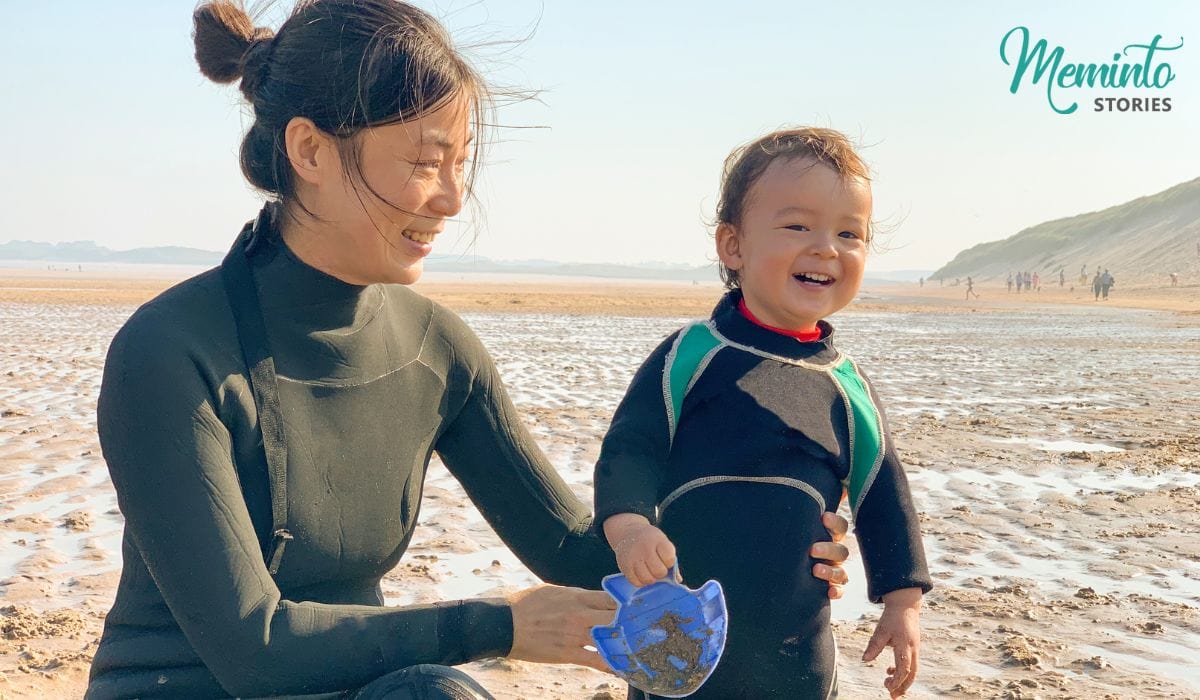
Childhood is a time full of firsts—first steps, words, and the first day of school. Children learn to talk, think, and play with others as they grow. This section looks at 50 questions about growing up:
- How did you learn to explore your surroundings as a young child?
- What were some of your favorite ways to play during your early years?
- Did you exhibit any signs of separation anxiety when you were young?
- How did you develop your communication skills in your early years (through gestures, babbling, and first words)?
- Can you recall any milestones you achieved as a young child (crawling, walking, talking)?
- Did you have any imaginary friends or pretend play scenarios you enjoyed?
- How did you learn about emotions and express your feelings as a child?
- Did you experience any tantrums or meltdowns as a young child? How did caregivers respond?
- How did you develop basic self-care skills like eating, dressing, or toilet use?
- Did you have any favorite objects or “comfort items” you carried around as a child?
- How did your play evolve as you entered middle childhood?
- Did you participate in any organized sports or extracurricular activities?
- How did your friendships develop and change during this stage?
- Did you start to develop any specific interests or hobbies during middle childhood?
- How did you learn and process information in school? Do you have any preferred learning styles?
- Did you develop a sense of independence and responsibility during this stage?
- Did you start to understand the concept of right and wrong and build your moral compass?
- Did you experience any social anxieties or peer pressure during middle childhood?
- How did your understanding of the world and your place in it evolve during this stage?
- Did you experience any significant physical changes associated with puberty?
- How did your relationship with your parents change during adolescence?
- Did you experience any feelings of rebellion or a desire for greater independence?
- How did you navigate peer pressure and social expectations during adolescence?
- Did you develop any romantic interests or begin exploring your sexuality during this stage?
- How did you cope with the emotional changes and mood swings associated with adolescence?
- Did you start thinking about your future goals, career aspirations, or college plans?
- How did you develop your sense of identity and become more self-aware during adolescence?
- Did you face any challenges with self-esteem, body image, or fitting in during this stage?
- Did you learn any valuable life lessons or make significant decisions during adolescence?
- How did you transition from childhood to adulthood?
- Did you feel like you had a healthy balance between play, learning, and responsibility throughout your childhood?
- Do you think your caregivers provided adequate emotional and practical support for your development?
- In what ways did your social environment (family, friends, school) contribute to your development?
- Did you experience significant milestones or turning points during your childhood that shaped your identity?
- Do you feel like your childhood experiences prepared you well for adulthood?
- Looking back, are there any aspects of your childhood development that you wish were different?
- What are some of the most valuable skills or lessons you learned during childhood?
- How do you continue to learn and grow as an individual today?
- How do you plan to create a nurturing and supportive environment for your children or the children in your life?
- What advice would you give to your younger self about navigating childhood development?
- How did your cultural background or family traditions influence your childhood development?
- Did you experience any socioeconomic factors that impacted your development (poverty, wealth)?
- Did you have any physical or learning disabilities that shaped your childhood experiences?
- How did your gender identity or expression affect your development and social interactions?
- In what ways did media and technology influence your development during your childhood?
- In what ways did media and technology influence your development during your childhood?
- How did historical events or societal changes impact the environment of your childhood development?
- Do you think childhood development experiences differ significantly in today’s world compared to the past?
- What are some essential considerations for promoting healthy childhood development in a diverse world?
- Do you have any specific memories of learning valuable life lessons through play or exploration during childhood?
- How do you think your childhood development has influenced your parenting style or approach to nurturing children?
Wrap Up
Reflecting on our childhood memories allows us to understand our past, appreciate our journey, and recognize the experiences that shaped us. These 200 questions offer a pathway to rediscovering these moments, whether filled with joy, learning, or challenges. By revisiting our childhood through these thought-provoking questions, we gain valuable insights into our current selves, empowering us with a more profound sense of identity and self-awareness. Remember, whether light or heavy, each memory contributes to the unique tapestry of who we are.
FAQ
Why are childhood memories important?
Childhood memories form the foundation of our identity, influence our behaviors, and shape our emotional responses.
Can revisiting childhood memories impact our current lives?
Reflecting on childhood experiences can offer insights into our present-day choices and relationships and sometimes even provide healing and closure.
How can answering these questions benefit me?
A: These questions encourage introspection, help you connect with your past, and provide clarity and understanding about your journey.
Is it normal to have mixed emotions about childhood memories?
A: Absolutely. Childhood encompasses a range of experiences, and it’s natural to have varied emotional responses to different memories.
How can I preserve and share my childhood memories?
A: Creating a memory book, like on meminto.com, is an excellent way to document and share these precious moments with others.







